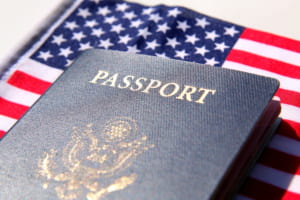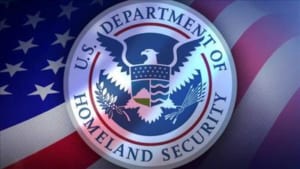On July 14, 2020 President Trump signed the Hong Kong Autonomy Act of 2020 and at the same time signed The President’s Executive Order on Hong Kong Normalization. The intent of this Executive Order (“EO”) is to suspend or eliminate different and preferential treatment for Hong Kong, including the treatment of Hong Kong nationals as separate from China nationals under the U.S. immigration laws.
 The EO cites a number of laws regarding U.S. and Hong Kong relations, including Section 202 of the United States-Hong Kong Policy Act of 1992, Section 103 of the Immigration Act of 1990; and Sections 203(c), 212(l), and 221(c) of the Immigration and Nationality Act of 1952. The EO gives the appropriate agencies 15 days to commence enforcement of the actions ordered by the President.
The EO cites a number of laws regarding U.S. and Hong Kong relations, including Section 202 of the United States-Hong Kong Policy Act of 1992, Section 103 of the Immigration Act of 1990; and Sections 203(c), 212(l), and 221(c) of the Immigration and Nationality Act of 1952. The EO gives the appropriate agencies 15 days to commence enforcement of the actions ordered by the President.
The impact on Hong Kong passport holders will be profound.
Under Section 2 of the EO, Trump expressly eliminates the preference for Hong Kong passport holders as compared to PRC passport holders. The effect of this will be to treat Hong Kong nationals the same a Chinese nationals in visa allocation, visa validity and visa application fees.
Most sever of these – visa allocation – will be a change to how the U.S. allocates visas to Hong Kong nationals for immigrant visa categories that are oversubscribed (basically all categories for Chinese nationals). Hong Kong nationals will now be folded into the same “China mainland-born” visa waiting list and might wait years, or in some cases decades, for visas to be available.
It might still be too early to panic just yet. Cooler heads might prevail and adjust or even reverse the impact of the EO on Hong Kong passport holders. The President might realize that these orders only hurt the people of Hong Kong. Regulations might “grandfather” anyone who is already in the immigration process so that they may continue without harm.
There is also an interesting question as to how the U.S. will apply the EO to those with British National Overseas passport holders versus Hong Kong, Special Administrative Regional passport holders. The U.S. immigration laws regarding immigrant visa allocation is based on “country of birth” and not on an applicant’s passport, so it will be interesting to see how this is handled.
With many clients from Hong Kong, Enterline and Partners will be following this development closely.
For more information, contact us at info@enterlinepartners.com and speak with one of our U.S. immigration lawyers in Ho Chi Minh City, Manila and Taipei.
ENTERLINE & PARTNERS CONSULTING
Ho Chi Minh City, Vietnam Office
Suite 601, 6th Floor
Saigon Tower
29 Le Duan Street
Ben Nghe Ward, District 1
Ho Chi Minh City, Vietnam
Tel: +84 933 301 488
Email: info@enterlinepartners.com
Facebook: Enterline & Partners – Dịch vụ Thị thực và Định cư Hoa Kỳ
Website: http://enterlinepartners.com
Manila, Philippines Office
Unit 2507 Cityland 10 Tower 1
156 H.V. Dela Costa Street
Makati City, Philippines 1209
Tel: +632 5310 1491
Email: info@enterlinepartners.com
Facebook: Enterline and Partners Philippines
Website: https://enterlinepartners.com/language/en/welcome/








